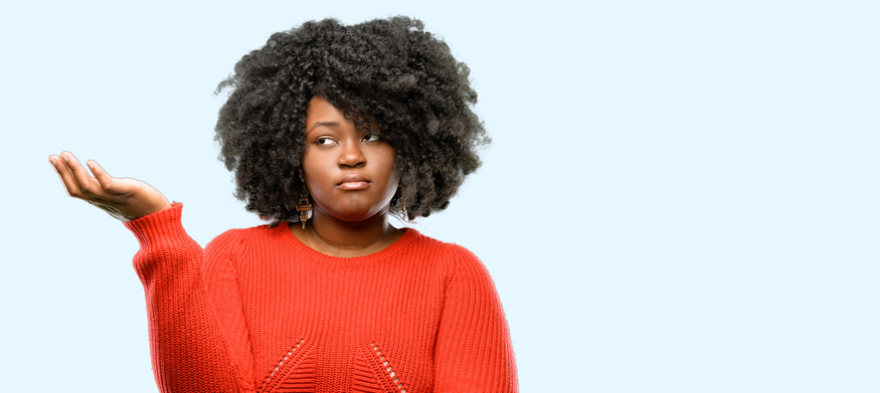
Jan 19, 2020 12:00:00 AM
Shame on it all! In a new report, “The Secret Shame: How America’s Most Progressive Cities Betray Their Commitment to Educational Opportunities for All,” brightbeam (the umbrella org for Education Post and our other platforms) spills all the tea.
And as an early disclaimer, the report—and America in general—uses the term “achievement gap” to describe education proficiency lapses between different groups. Starting here and now, we’re going to get into the habit of saying “opportunity gap” because all of our students are entirely capable of succeeding—it’s the failure to provide them the opportunities to do so that causes the gaps.
Now, we all know there’s a persistent and pervasive opportunity gap between Black, Latinx and White students. However, brightbeam discovered that some cities have waaaaay worse gaps than others. And the shade is, the cities with those divides are actually our beloved “progressive” cities! And, my hometown—Chicago—was on that list!
Damn, damn, damn!!!
Researchers looked at the math and reading proficiency data in the 12 most progressive and 12 most conservative cities in the country. They found that conservative cities were actually faring better at closing the opportunity gap between these groups.
Now before learning about these findings, I’d actually started to have faith in our elected officials and education administrators in Chicago. I wanted to believe that students living in my stomping grounds of Englewood, Garfield Park, Roseland and other communities like them were getting the academic investment, support and rigor they need and deserve.
I was hoping that their chance of accessing a good education would no longer be contingent upon them testing into a selective enrollment school. And I was looking forward to the days of zip codes being a determinant in the quality of education you received ending.
But, as an education activist and organizer who has great insight into Chicago’s politics and a CPS graduate who felt the effects of a system that cheats kids from low-income communities, I’m not entirely shocked.
While brightbeam didn’t dive into exploring the causation of these varying outcomes—and even though Chicago wasn’t amongst the most flagrant offenders—[pullquote]this report absolutely serves as a wake-up call and now it's open season for our progressive leadership to really lean into their proclaimed values.[/pullquote]
We’ve seen over 50 schools close in the last two decades, and lately I’ve been concerned with the possibility of more considering the release of the school utilization report saying there are still hundreds of underutilized schools.
Teachers of color have borne the brunt of CPS’ mass layoffs—not to mention the incessant and underlying issue of deficient teacher diversity—and Black and Brown communities have been pawns and losers in an ongoing political battle between CPS, Chicago Teachers Union (CTU), city hall and education reform organizations.
And yes, Chicago may have been acclaimed for its glowing academic performance a few years back but in 2018, it was reported that those gains had come to a slow crawl and plateau and a few schools’ performance ratings have been downgraded. So we can’t ride that “we got it right once upon a time” wave forever.
All of these factors—including a laundry list of others—are contributing to the exodus of Black families from Chicago and consequently, a decline in school enrollment and quality of education at schools predominantly on the south and west sides.
Look, it’s the year 2020. The reality that there’s a 28 point gap between Latinx and White students in math and reading proficiency, and even worse, a 36 point divide between Black and White students in Chicago is unacceptable.
So if you know me, you know what’s next—it’s action time!
For my people in Chicago, stay tuned. I'll have more actions for you to directly target your alderman and Mayor Lightfoot, telling them you’d like them to address these issues and meet you at the upcoming education town hall I’ll be hosting.
City leadership, y’all have done alright but we need y’all to do better. I know—we have a new mayor who claims to be progressive, a new school board and a few new faces on city council. That’s a start. But we can’t expect change to happen overnight. If Chicago is as progressive as it wants to be—not so much proven—then this is an opportunity to acknowledge our areas of growth and stand on those progressive values and tenets.
Tanesha Peeples is driven by one question in her work—“If not me, then who?” As the former Deputy Director of Activist Development for brightbeam, Tanesha merges the worlds of communications and grassroots activism to push for change in the public education system. Her passion for community and relentless mission for justice and liberation drive her in uplifting and amplifying the voices and advocacy of those that are often ignored. Tanesha wholeheartedly believes that education is the foundation for success. Her grand vision is one where everyone—regardless of ethnicity, socioeconomic status, gender or ZIP code—can have access to a comfortable quality of life and enjoy the freedoms and liberties promised to all Americans. And that's what she works towards every day.
Few issues in education spark more tension and debate than standardized testing. Are they a tool for equity or a burden on students? A necessary check on school systems or a flawed measure of...
Charter schools are public schools with a purpose. Operating independently from traditional school districts, they're tuition-free, open to all students, and publicly funded—but with more flexibility...
Despite the benefits of a diverse teaching force, prospective teachers of color fall out of our leaky preparation pipeline at every stage: preparation, hiring, induction, and retention. Here’s what...
Ed Post is the flagship website platform of brightbeam, a 501(c3) network of education activists and influencers demanding a better education and a brighter future for every child.
© 2020-2025 brightbeam. All rights reserved.
Leave a Comment